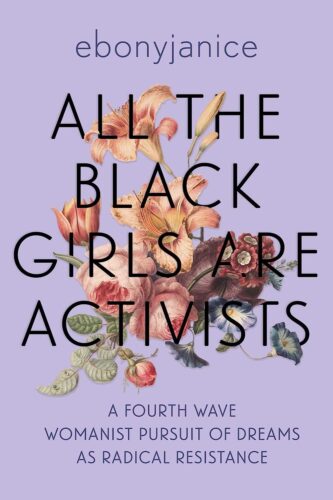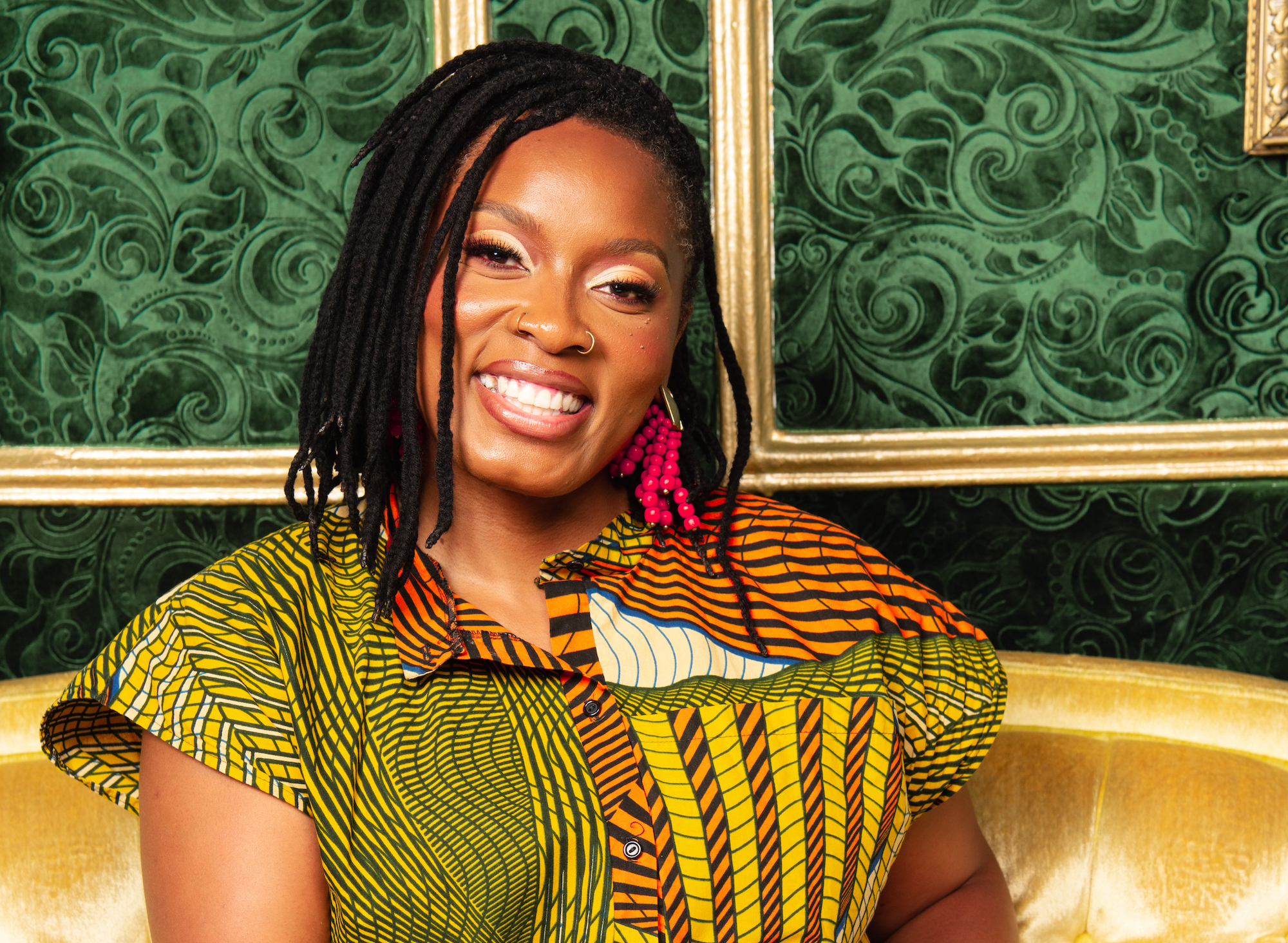In pursuit of social justice, it is all too common to neglect our own well-being. Constantly advocating for change, or fighting for basic human rights and respect, can take a severe toll on your mental health. Author, speaker, and creative EbonyJanice Moore has seen firsthand how deeply this can impact Black women, and is spreading the word about a new movement called the Fourth Wave of Womanism.
This revolution prioritizes the mental health and wellness of Black women as an essential component of their activism, and is the focus of EbonyJanice’s new book All the Black Girls Are Activists: A Fourth Wave Womanist Pursuit of Dreams As Radical Resistance.
“If you want to know what Black women are doing that is revolutionary, that is radical, we are playing and intentionally seeking the experience of bliss and pleasure. We are healing our ancestors. We are doing deep breathing and wholeness work,” says EbonyJanice. “If you want to know what Black women are doing that is going to change the world, we are in pursuit of a fourth wave of womanist thought, and that is our very worthy and credible contribution to the movement.”
We love that this movement promotes the idea of rest as radical, of healing and self-care as critical. We connected with EbonyJanice to hear more about how her book came to be, her advocacy in the mental health and wellness space, and her advice for activists who may be struggling.
Can you explain what the fourth wave of womanism is, and how we’re seeing it emerge today?
Womanism, a term coined by Alice Walker in her book In Search of Our Mothers Gardens is a sociopolitical, spiritual/religious theory, based on the experiences of Black women, used for justice-making. There have been three recognized waves of womanism, which center Black women’s spiritual and religious thought and our communal ethics of resistance.
I have introduced and coined this current moment that we are in a fourth wave of womanism because Black feminist and womanist scholars and activists are collectively shifting to a revolution that looks like centering our wholeness and our wellness over a resistance that will cost us our spirit, soul, body — our lives.
What did the process of writing All The Black Girls Are Activists look like? What feelings arose for you while writing?
This writing process was very hard because I was in the midst of a broken heart. There were days when I could not think about Black feminist or womanist theory in an intellectual way. But this writing process also saved my life in those broken moments because when I thought about the praxis (or practice) of womanist existence – I realized I had the tools to maneuver through a very difficult season and still do justice-making work. That, in fact, my responsibility to my work and my writing was to wake up, cry my eyes out, create the deep ritual of healing that supported me in moving through this moment, and then write when it was easeful for me.
I also had to be very transparent with my publisher that my heart was broken and was sometimes struggling to make certain deadlines. I feel deeply grateful and privileged that the team at Row House cared more about my mental health than forcing deadlines. We still got an amazing book out of the process but no authors were further emotionally injured in the making of this book! LOL!

What is something you wish was more widely understood about mental health & wellness in activism?
All The Black Girls Are Activists: A Fourth Wave Womanist Pursuit of Dreams As Radical Resistance absolutely fleshes this out even more—but what I wish was more widely understood about mental health and wellness in activism is that being well in a culture and society that is the opposite of well IS a worthy contribution to revolution. And that’s all, and that’s it. And if that’s all marginalized folk do is center our wellness… then we have done something very revolutionary because we have resisted systems that only find value in our contribution to production.
What would you say to someone who is realizing that their activism is impacting their mental health?
I would ask them to ask themselves, “When you say all people deserve to be free in a just and equitable society — you mean you too, right?” And whatever the answer is to that question, I would encourage them to ensure their actions align with that answer. Whatever it will take to make sure that I am free when we arrive at freedom, is my worthy contribution to this work.
What does self-care look like for you?
For me, self-care is deep ritual at my ancestor altar, turning everything into a way to worship, and making time to lay around and read romance novels. And I treat my self-care like it is my full-time job and everything else is the supplemental portions of my existence.
What have some of the early responses to the book been like?
One of my favourite pieces of feedback was from my friend, Sonya Renee Taylor, who said that my book sounds exactly like me, to the point that while she was reading it she felt like we were just having an intimate conversation. I LOVE that so much. I love the possibility of people, that do not know me, reading this book and feeling like they’re sitting with me at the kitchen table talking about how we are going to dream ourselves free.
What is your greatest hope for this book in terms of inspiring change?
I hope that Black women, most specifically, will read this book and decide to shift to an activism that sees them as worthy and no longer buy into the idea that there is only one kind of revolution; the revolution that costs us our softness, our dreaming, our ease, our peace of mind and often — the revolution that costs us our lives.
All The Black Girls Are Activists by EbonyJanice Moore is now available to purchase.



 Follow Us On Instagram
Follow Us On Instagram
